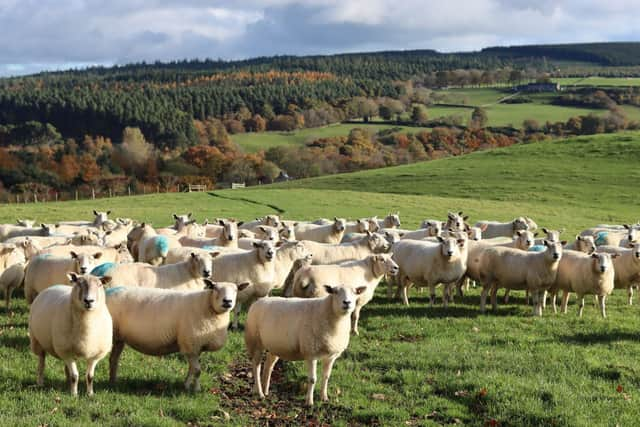Researchers to study innovative treatment of wool waste
and live on Freeview channel 276
This ground-breaking project aims to revolutionise the way wool waste is handled, potentially unlocking valuable resources while addressing environmental concerns.
Dr Kaitlin Ramsay, the lead investigator, explained that anaerobic digestion, a biological process where microorganisms break down organic materials without the presence of oxygen, holds promise in transforming wool waste into something useful.
Advertisement
Advertisement
Wool waste, comprising scraps and trimmings generated during wool production, poses significant challenges due to its durability and stability. Conventional treatment methods often come with high costs and environmental consequences, such as releasing greenhouse gases during composting.


Dr Ramsay highlighted the project's focus on enhancing the hydrolysis stage, the initial breakdown of complex compounds into smaller ones. By speeding up this process, researchers aim to significantly reduce the time required for biological degradation, potentially turning months-long treatment into a more efficient and sustainable operation.
Dr Ramsay said: “The use of anaerobic digestion presents a promising avenue for treating wool waste. Unlike composting, anaerobic digestion doesn't rely on oxygen and offers the added benefits of nutrient recovery and renewable energy generation. While anaerobic digestion has been explored in various industries, including wastewater and agriculture, its application in the wool industry remains largely uncharted territory.”
The implications of this research are far-reaching, according to Dr Ramsay. Not only could it lead to financial savings for farmers grappling with the disposal of wool waste, particularly from meat industry by-products, but it could also promote a circular economy by turning waste into a valuable resource.
Advertisement
Advertisement
Dr Ramsay said: “Sheep bred for meat often produce wool with limited practical applications, leading to transportation costs that offset any revenue from fleece sales. By harnessing anaerobic digestion, we hope to add value to wool waste through renewable energy generation and nutrient recovery.”
While the project is still in its infancy, the team is optimistic about its potential impact. Dr Ramsay emphasised the importance of finding a viable and scalable hydrolytic method before progressing to anaerobic digestion trials. The Royal Society of Chemistry is funding this project as part of a research enablement grant.
Dr Ramsay is collaborating closely with the University’s Dr Joanne Roberts, who has been exploring the use of wool as an alternative to plastic in agriculture. Together, they aim to leverage their expertise and partnerships with organisations such as the Knowledge Transfer Network and the Scottish Agricultural Organisation Society to drive meaningful change in the wool industry.